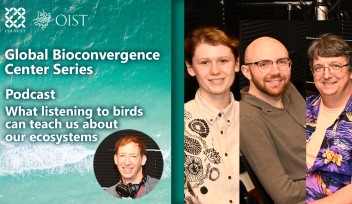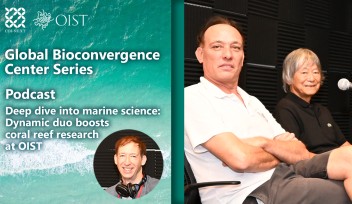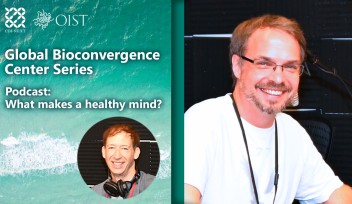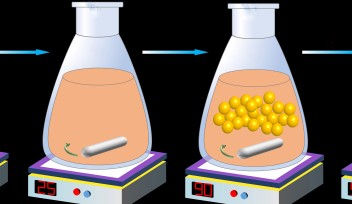New Center of Innovation at OIST
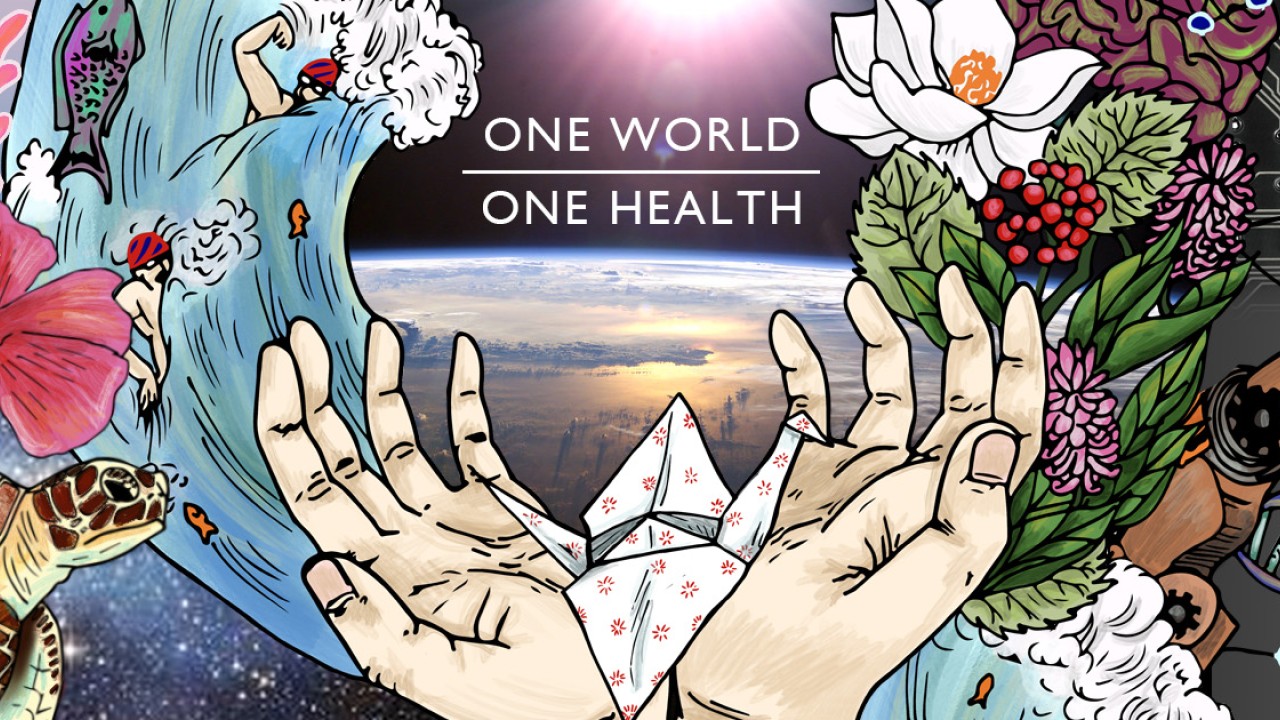
Nutrition, stress, aging, illness, and the environment profoundly affect our health. When this balance is disrupted, disease, food insecurity, biodiversity loss, and pollution become issues of public concern worldwide. Science and technology hold tremendous potential to tackle these problems, but a global, multi-disciplinary, collaborative approach is needed to transform basic science discoveries to societal benefit.
Okinawa Institute of Science and Technology (OIST) will establish the Global Bioconvergence Center of Innovation, supported by a grant from the Japan Science and Technology Agency JST (Japan Science and Technology) Program on Open Innovation Platform for Academia-Industry Co-Creation (COI-NEXT). The Center’s vision is to strive towards a One World, One Health society — a concept recognizing the indivisible relationship between humanity and the natural world, and the benefits that will ensue.
The Center aims to realize this vision by becoming a platform that promotes “bioconvergence.” Bioconvergence is a new strategy to channel interdisciplinary synergies between life and biomedical, marine sciences, engineering, AI and complex systems, and the institutional synergies between academia, government, and industry to accelerate the development of practical solutions.
OIST President Peter Gruss celebrated the announcement: “The grant award from JST is the largest in OIST history. This news follows Adjunct Professor Svante Pääbo being awarded the 2022 Nobel Prize in Physiology or Medicine and shows how OIST continues in its mission to promote world-class research, education, and innovation.”
“We build on OIST’s unique global, interdisciplinary environment,” says Professor Nicholas Luscombe, the Project Leader. “We will bring together scientists and innovation experts to collaborate on R&D projects in the three target areas of a ‘Healthy Mind, Healthy Body, and a Healthy Environment.’”
OIST Provost and Professor Amy Shen adds, “Bioconvergence promotes the intersection between science and technology. It is a mass convergence of multiple fields!”
The Center launches with an initial cohort of 11 Research Units OIST’s Technology Development and Innovation Center (TDIC), and 30 academic, governmental, and industrial partners. The first R&D projects include:
Professor Keiko Kono in partnership with Suntory Holdings Limited will use her unit’s discovery of a new cellular senescence pathway to develop novel approaches to healthy aging.
Adjunct Professor and Deputy Project Leader Hiroaki Kitano together with Corundum Systems Biology will establish a fully automated lab system for multi-omics and microbiome analysis.
Professors Tim Ravasi, Satoshi Mitarai, and Nori Satoh will collaborate with local industry partners and governments to survey oceanic currents and coral reef biodiversity in the Ryukyu Islands.
A list of all participants and partners : PDF (Japanese only, from the JST website)
Additional projects and partners will be included as the Center develops and projects will be nurtured to commercial and public applications through Co-Creation Labs and the Startup Acceleration Model that will be established as part of the Center.
“The Global Bioconvergence Center of Innovation is a key achievement in OIST’s goal to uncover novel solutions by integrating distinct scientific disciplines and organizations that would not normally come together,” says the Center’s Administration Officer and Executive Vice President for TDIC, Gil Granot-Mayer. He continues, “I am excited to bring my experience from Israel to Japan and connect the startup ecosystems of both countries. Okinawa is the perfect place for this meaningful work.”
Professor Keiko Kono added, “At its heart, this center is about diversity: diversity of scientific fields, diversity of people, diversity of institutions, and diversity of ideas. We achieve convergence through diversity.”










